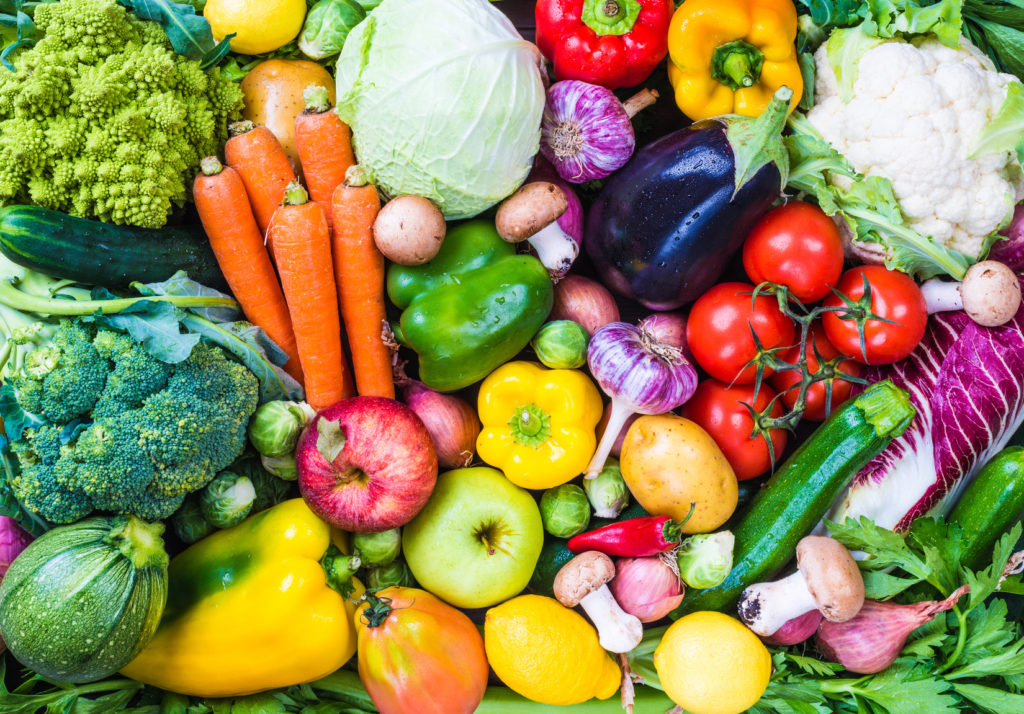Increased well-being and life satisfaction through a lot of fruit and vegetables
Anyone who eats a lot of fruits and vegetables, the benefits are not only physical health, but also increases the psychological well-being. A new study from the United Kingdom.
Healthy Food
Health experts recommend daily to consume at least five to ten servings of fruits and vegetables. This supplies your body with important vitamins and minerals and protects against diseases. In addition, we also can make such food happy, as Australian scientists reported years ago. British researchers arrived in a new study now, similar results.

It has a positive influence on the well-being of
It has long been known that our daily diet has a significant influence on our well-being.
So, for example, a high consumption of fruits and vegetables can increase the satisfaction and well-being, such as British physician, reported already years ago.
English researchers came to similar results. According to their in the journal “Social Science and Medicine” published a study of the consumption of more fruits and vegetables can improve the psychological well-being.
Changes in fruit and vegetable consumption
Researchers from the University of Leeds and University of York found in a long-term study, changes in fruit and vegetable consumption have an impact on the psychological well-being.
To get your results analyzed researchers data from more than 40,000 people in the UK.
The study participants had to regularly provide information to their eating habits, as well as information about your mental Constitution. For this, they used a standard test in which you should, your feelings and Worries on a scale of 0 to 3 to assess.
The researchers also controlled for alternative factors that can affect the psychological well-being, such as age, education, income, marital status, employment status, lifestyle and health, as well as consumption of other foods such as bread or milk products.
An additional Serving per day
As the two universities reports, the study showed a positive correlation between the amount of consumed fruit and vegetables and self-reported psychological well-being of the people.
The results show that eating just one extra Portion of fruit and vegetables per day can have a similar effect on the psychological well-being, such as eight additional Gehtage per month.
“While further efforts are required to show cause and effect, the results are clear: people who eat more fruits and vegetables, report higher levels of psychological well-being and life satisfaction than those who eat less,” said Dr. Neel Ocean, from the University of Leeds in a statement.
Better dietary habits to promote
“There seems to be evidence for the psychological Benefits of fruits and vegetables,” said Dr. Peter Howley from the University of Leeds.
But – not just in the UK consumed a large part of the population is still less than the recommended five servings per day.
“The promotion of better eating habits can not only serve the long-term physical health, but in the short term, the psychological well-being improve,” says Dr. Howley.
The information suggests that the research built on earlier Work in Australia and new Zealand, where there is a connection between diet and psychological well-being was shown. This could be using a much larger sample from the United Kingdom reviewed.
The German Federal centre for nutrition (BZfE) points out, however, in a communication to bear in mind that pure observational studies cannot demonstrate causal relationships.
According to the researchers, certain ingredients of the plant food is likely to have a positive effect on the soul. So about antioxidants and degradation products to penetrate deeply complex carbohydrates on the brain and lift the mood.
However, it would also be possible, that due to the high fruit and vegetable intake unhealthy foods less frequently consumed. (ad)





